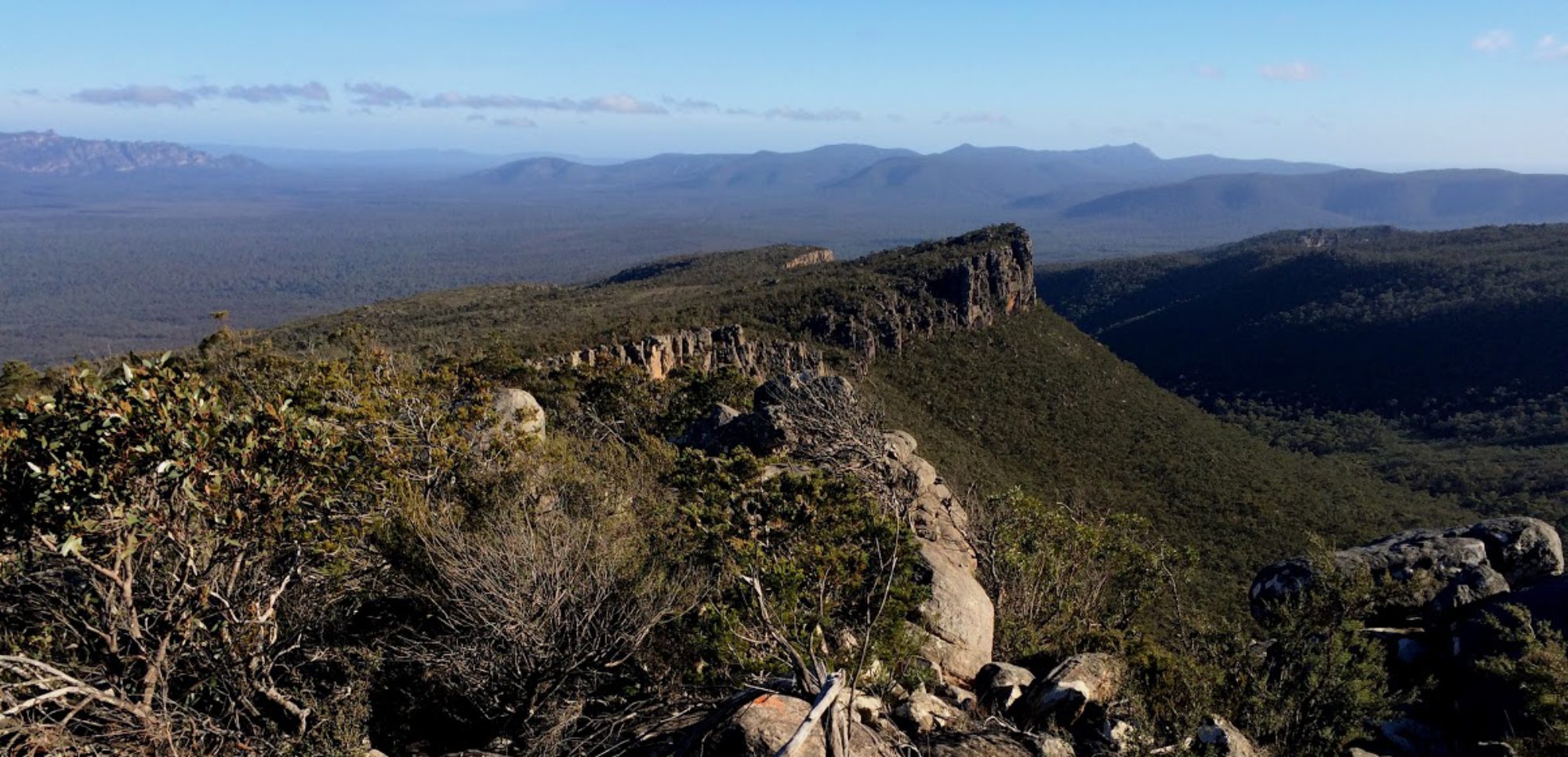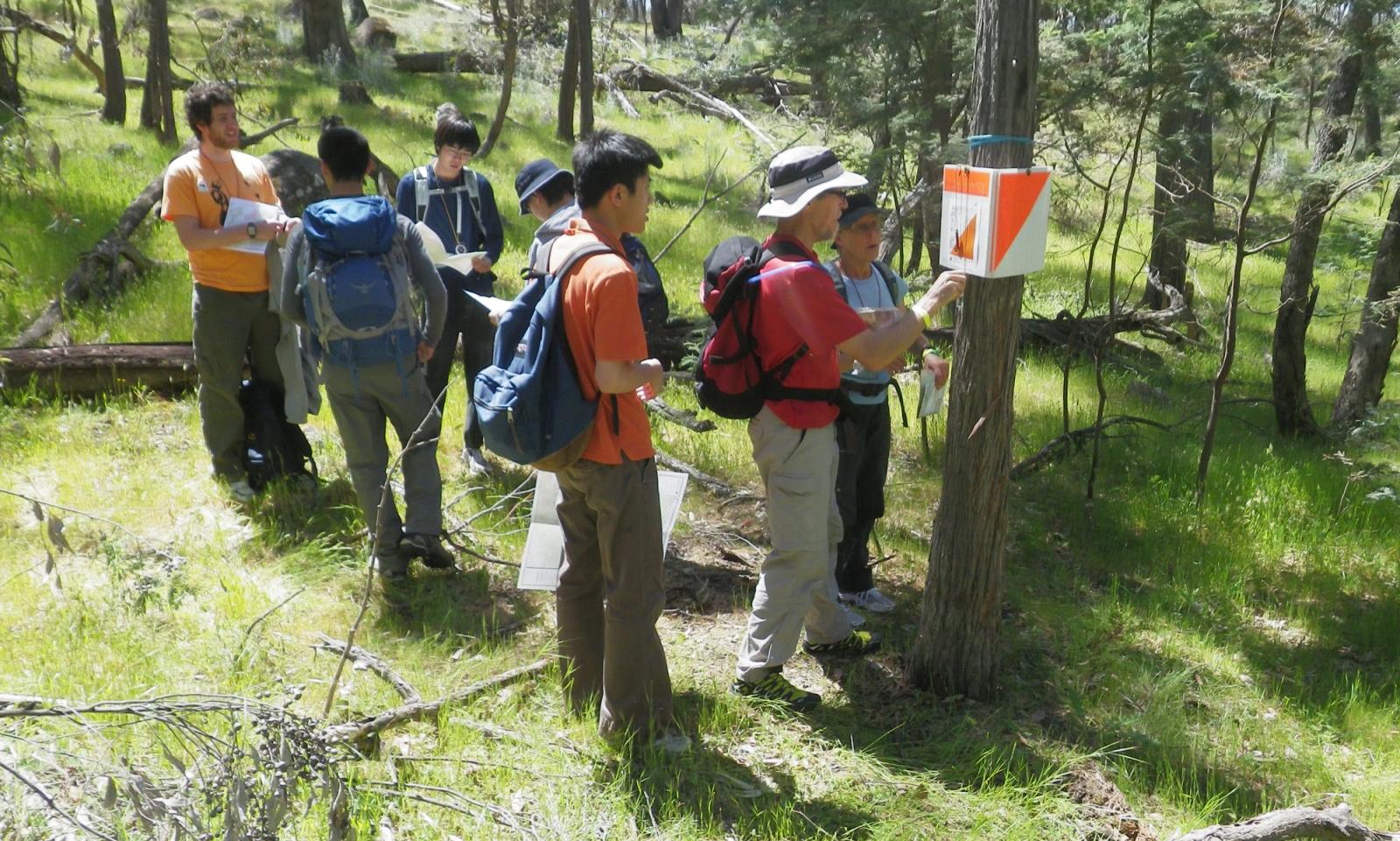Reading Time: 3 minutes
Introduction
Many bushwalkers also enjoy Rogaining; hardly surprising as the two activities are very similar. The areas selected for Rogaines are varied and invariably interesting, because most checkpoints will be off-track. For example, in Victoria events are often set in the open forests of the historic goldfields to the north and west of Melbourne.
Rogaining is the perfect way to learn and improve map and compass navigation. Rogaines are great to do as a family, as children enjoy finding the checkpoints, and the “all you can eat” hash house at the finish.
The vast majority of Rogainers walk around their chosen course, although the champion teams do run. You get to see them in action. Most checkpoints are off-track, but the areas used for Rogaines have plenty of tracks to use between checkpoints and generally the bush is relativity open.
The longer events do include some night hours, but how much time a team spends out at night is up to them. But just attempting a few checkpoints near the hash house at night greatly increases navigation confidence.
What is Rogaining?
Rogaining is the sport of long distance cross-country navigation in which teams of two to five members visit as many checkpoints as possible in the specified time. In Victoria, Rogaines are typically run over periods of 6, 12 or 24 hours. In a bush Rogaine teams travel entirely on foot, navigating by map and compass between checkpoints in terrain that varies from open farmland to hilly forest. The Victorian Rogaining Association also runs a few events on bikes, and in metropolitan areas!
A central base camp (called the “Hash House”) provides hot meals and drinks for competitors throughout the longer events and at the end of the shorter events. Teams may return to the Hash House at any time to eat, rest, chat or sleep. These refreshments are included in the entry fees for the event.
Teams travel at their own pace and anyone from children to grandparents can experience the personal satisfaction that comes from cross-country navigation at their own level of competition and comfort.
Rogaining developed as a sport in its own right in the early 1970’s, but 24-hour walks had been held since at least 1947 by the Melbourne University Mountaineering Club. The word Rogaine was coined from: ROd, GAIl and NEil, the three Victorians who developed the first Rogaine.
Rogaining is a team activity for people of all ages and levels of fitness. It provides competitors with navigational challenges, a way of enjoying the outdoors, and a sense of achievement. Some attractions of Rogaining include access into places that are very scenic, the opportunity for night navigation and the extra challenges that this involves, camping at the Hash House around a fireplace, and the feeling of community when helping out.
The parts of the course you chose to cover are entirely up to you and your team members. Some teams may cover more than 60km in a 12 hour event or over 100km in an event of 24 hours duration. However, many others may walk only a few kilometres and achieve just as much satisfaction. The enjoyment comes from finding your way around a course that you have chosen and navigating back to the finish. Since there is no restriction on which, or how many (or few) checkpoints you choose to visit, competitors of all ages and standards can compete on the same playing field.
Source: Victorian Rogaining Association
How to begin?
Check the events calendar on your State Rogaining Association website (links below). Read the details of upcoming events; event length, location, type of terrain, etc. If it suits, complete the online entry process for your team. This may involve joining the State Association too.
Generally, as part of your event entry you will get a good feed at the Hash House at the end of the event, and during the event on longer events. You will receive a high quality map of the course area. You will get access to a wonderful part of your State that you may never have been to, and may never get access to again, because Rogaine events sometime include private land, for which special permission has been obtained to use (but only for the period of the event).
All events are run by volunteers, so after you’ve done a few events, expand on the experience by volunteering to help run one. This can involve helping out with cooking at the event, driving equipment up to the event site, collecting checkpoint markers after the event, or even setting or coordinating an event. The volunteering is terrific fun.
References and external links
- “Which Way’s North” is an excellent source of further information on rogaining. It includes navigation instruction.
Australian State Rogaining Associations
- NSW Rogaining
- ACT Rogaining Association
- Queensland Rogaine Association
- South Australian Rogaining Association
- Rogaining Tasmania
- Victorian Rogaining Association
- Northern Territory Rogaining Association
- Western Australian Rogaining Association
Peak Rogaining Organisations
Overseas Rogaining

